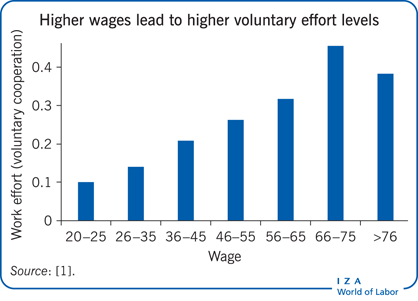Elevator pitch
How do firms motivate their employees to be productive? The conventional wisdom is that workers respond to monetary incentives—“Pay them more and they will work harder.” However, a large and growing body of empirical evidence from laboratory and field experiments, surveys, and observational data, as well as neuroeconomic research, suggests that workers’ perceptions of fairness and trust are also key drivers of their work effort. Treating employees with respect is not only ethically warranted, it can create positive economic outcomes for both the worker and the firm.

Key findings
Pros
Kind and fair treatment can help employers to motivate their workers.
Offering sufficiently high wages may elicit effort levels above the contractually enforceable minimum.
Unfairness is punished, even if punishing is costly.
“Trust pays,” since many workers are intrinsically trustworthy and react negatively to controlling work environments.
Controlling devices in the workplace and particular forms of explicit performance incentives may entail “hidden costs.”
Cons
Employment contracts are typically incomplete and cannot fully resolve the conflicting interests of workers and firms.
Monetary incentives are less effective when offers are perceived as unfair.
Treating agents in an unfair or unkind manner can evoke counterproductive activities such as shirking or sabotage.
Unfair payment can lead to physiological stress and adverse health consequences.
Controlling may give rise to a self-fulfilling prophecy of distrust between workers and firms.